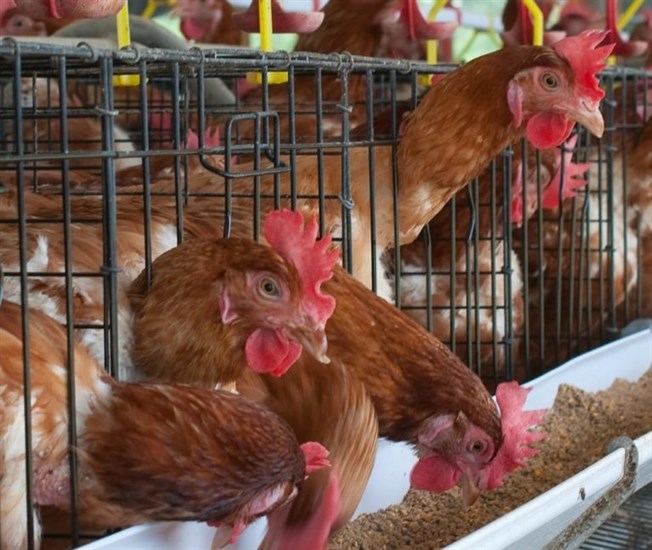
Image Credit: BC SPCA
February 22, 2020 - 10:30 AM
Eggs are in high demand during the Easter season and the BC SPCA is proposing a few tips to support ethical egg laying practices.
In B.C. more than 75 per cent of the eggs we buy come from hens that have spent their entire lives in small, cramped cages, according to the BC SPCA.
When buying eggs, look for “cage free,” “free run,” or “free range” labels.
If there is no label, the hens were raised in cages, according to the BC SPCA.
Look for third-party certification
Third-party certification programs – like SPCA Certified, Animal Welfare Approved, Certified Humane, Certified Organic and Global Animal Partnership – give you the assurance that hens were not only raised in cage-free housing systems, but that they had plenty of space to move around, spread their wings, and perform their natural behaviours, according to the BC SPCA.
When you’re grocery shopping, look for Certified Organic eggs from Rabbit River Farms, or SPCA Certified eggs from Rehoboth Farm at Nada – Vancouver’s first package-free grocery store.
Look for egg alternatives
Eggs are the second most common food allergy in infants and young children, and some people choose to follow a diet that excludes meat, dairy, eggs, or any other animal products. There are plenty of egg alternatives to choose from that will keep your baked goods tasty and moist, according to the BC SPCA.
Unsweetened applesauce: This is a great substitute for eggs in most recipes. You can use one-quarter cup to replace one egg.
Fruit purée: You can use mashed banana or other fruits like pumpkin and avocado to replace eggs. Use one quarter cup of fruit purée for each egg you want to replace.
Ground flaxseeds and chia seeds: These make great egg substitutes. Mixing one tablespoon of either with three tablespoons of water can replace one egg.
Other Easter tips to help animals
Bunnies are one of the first things we think of when it comes to Easter, but think carefully before adopting a rabbit into the family. It may seem fun at first, but like all pets, rabbits need proper care and housing, according to the BC SPCA.
Many people have a tradition of eating fish and other seafood on Good Friday. When you buy seafood, help contribute to the health of the world’s oceans by choosing seafood that is sustainably caught or farmed.
One label you can look for is the Marine Stewardship Council blue fish label. Seafood with the blue MSC label is always wild, certified sustainable and traceable to a certified fishery.
To contact a reporter for this story, email Carli Berry or call 250-864-7494 or email the editor. You can also submit photos, videos or news tips to the newsroom and be entered to win a monthly prize draw.
We welcome your comments and opinions on our stories but play nice. We won't censor or delete comments unless they contain off-topic statements or links, unnecessary vulgarity, false facts, spam or obviously fake profiles. If you have any concerns about what you see in comments, email the editor in the link above.
News from © iNFOnews, 2020